第55章 VIII.(4)
If, on the other hand, instead of going about cheerily in society, making the best of everything and as far as possible forgetting your troubles, you can make up your mind to economize all your stores of vital energy, to hoard your life as a miser hoards his money, you will stand a fair chance of living until you are tired of life,--fortunate if everybody is not tired of you.
One of my prescriptions for longevity may startle you somewhat. It is this: Become the subject of a mortal disease. Let half a dozen doctors thump you, and knead you, and test you in every possible way, and render their verdict that you have an internal complaint; they don't know exactly what it is, but it will certainly kill you by and by. Then bid farewell to the world and shut yourself up for an invalid. If you are threescore years old when you begin this mode of life, you may very probably last twenty years, and there you are,--an octogenarian. In the mean time, your friends outside have been dropping off, one after another, until you find yourself almost alone, nursing your mortal complaint as if it were your baby, hugging it and kept alive by it,--if to exist is to live. Who has not seen cases like this,--a man or a woman shutting himself or herself up, visited by a doctor or a succession of doctors (I remember that once, in my earlier experience, I was the twenty-seventh physician who had been consulted), always taking medicine, until everybody was reminded of that impatient speech of a relative of one of these invalid vampires who live on the blood of tired-out attendants, "I do wish she would get well--or something"? Persons who are shut up in that way, confined to their chambers, sometimes to their beds, have a very small amount of vital expenditure, and wear out very little of their living substance. They are like lamps with half their wicks picked down, and will continue to burn when other lamps have used up all their oil. An insurance office might make money by taking no risks except on lives of persons suffering from mortal disease. It is on this principle of economizing the powers of life that a very eminent American physician, --Dr. Weir Mitchell, a man of genius,--has founded his treatment of certain cases of nervous exhaustion.
What have I got to say about temperance, the use of animal food, and so forth? These are questions asked me. Nature has proved a wise teacher, as I think, in my own case. The older I grow, the less use I make of alcoholic stimulants. In fact, I hardly meddle with them at all, except a glass or two of champagne occasionally. I find that by far the best borne of all drinks containing alcohol. I do not suppose my experience can be the foundation of a universal rule. Dr.
Holyoke, who lived to be a hundred, used habitually, in moderate quantities, a mixture of cider, water, and rum. I think, as one grows older, less food, especially less animal food, is required.
But old people have a right to be epicures, if they can afford it.
The pleasures of the palate are among the last gratifications of the senses allowed them. We begin life as little cannibals,--feeding on the flesh and blood of our mothers. We range through all the vegetable and animal products, of nature, and I suppose, if the second childhood could return to the food of the first, it might prove a wholesome diet.
What do I say to smoking? I cannot grudge an old man his pipe, but I think tobacco often does a good deal of harm to the health,--to the eyes especially, to the nervous system generally, producing headache, palpitation, and trembling. I myself gave it up many years ago.
Philosophically speaking, I think self-narcotization and self-alcoholization are rather ignoble substitutes for undisturbed self-consciousness and unfettered self-control.
Here is another of those brain-tapping letters, of similar character, which I have no objection to answering at my own time and in the place which best suits me. As the questions must be supposed to be asked with a purely scientific and philanthropic purpose, it can make little difference when and where they are answered. For myself, I prefer our own tea-table to the symposia to which I am often invited.
I do not quarrel with those who invite their friends to a banquet to which many strangers are expected to contribute. It is a very easy and pleasant way of giving an entertainment at little cost and with no responsibility. Somebody has been writing to me about "Oatmeal and Literature," and somebody else wants to know whether I have found character influenced by diet; also whether, in my opinion, oatmeal is preferable to pie as an American national food.
In answer to these questions, I should say that I have my beliefs and prejudices; but if I were pressed hard for my proofs of their correctness, I should make but a poor show in the witness-box. Most assuredly I do believe that body and mind are much influenced by the kind of food habitually depended upon. I am persuaded that a too exclusively porcine diet gives a bristly character to the beard and hair, which is borrowed from the animal whose tissues these stiff-bearded compatriots of ours have too largely assimilated. I can never stray among the village people of our windy capes without now and then coming upon a human being who looks as if he had been split, salted, and dried, like the salt-fish which has built up his arid organism. If the body is modified by the food which nourishes it, the mind and character very certainly will be modified by it also.
We know enough of their close connection with each other to be sure of that, without any statistical observations to prove it.